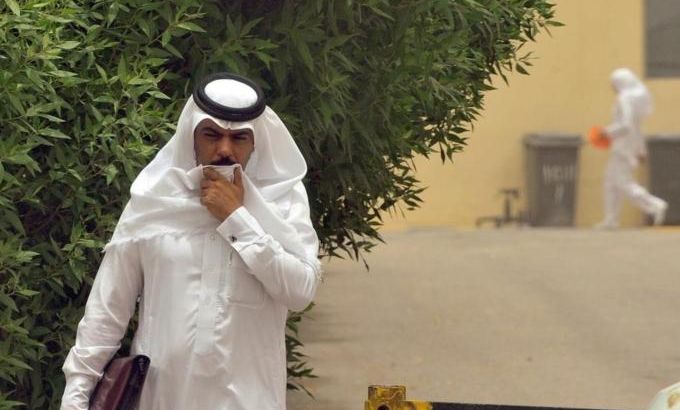
MERS: Who owns medical research?
As the virus threatens to go global, we look at the dispute over patents that is slowing down the search for a vaccine.
The Middle East Respiratory Syndrome, or MERS, is a virus that has already killed more than three dozen people, and threatens to become a global concern. The need for a vaccine against the virus is becoming increasingly vital, but a dispute over patents appears to be slowing everything down.
”The
means that we only sent the virus to laboratories and institutions that have the capability to work with it safely; and you could imagine that we would never send the virus to any laboratory that cannot guarantee that nothing will happen in terms of infections of people etc.”]
Keep reading
list of 4 itemsGaza lost much more than a hospital when it lost al-Shifa
With measles on the rise, rebuilding trust in vaccines is a must
Could a bird flu pandemic spread to humans?
Scientists at the Erasmus medical centre in Rotterdam say they only have the rights to the medicines and vaccines that treat the illness, not the virus itself. It is claimed that anybody now wanting to study the virus will have to pay a Dutch company to do so.
MERS, like SARS, is part of the coronavirus family.
First reported in Saudi Arabia last year, it infects the lungs, causing pneumonia and acute respiratory problems. Symptoms include fever, cough and shortness of breath.
It has spread from the Gulf to Tunisia, France, Germany, Italy and Britain, and according to the World Health Organisation, it has already killed 38 people.
Just like SARS, which killed about 800 people in 2003, it is spread by close contact and also transmitted through the air. That poses a high risk for hospitals and health care workers.
The move to patent rights of the MERS vaccine has angered Saudi Arabia. Ziad Memish, the country’s deputy health minister, declared: “We are still struggling with diagnostics and the reason is that the virus was patented by scientists and is not allowed to be used for investigations by other scientists. Samples … were shipped outside of the country without the knowledge or permission of the ministry of health, and I cannot believe that any country on this planet would allow this to happen.”
So, should any one entity own the sole right to create a vaccine? Or should science act for the whole of humanity?
To discuss this, Inside Story, with presenter David Foster, is joined by guests: Ab Osterhaus, the head of the department of virology at Erasmus University; Peter Saunders, professor at the Institute of Science in Society; and Edward Hammond, from the Third World Network, who is also a patent specialist.
|
“The Material Transfer Agreement says that in effect any invention, any new method of treating or of diagnosing the virus that is invented in a laboratory of the recipient, belongs to Erasmus University. And this has a chilling effect on institutions because they are not certain if they conduct research, if at a later time they will be accused of patent infringement … This puts institutions that want to work on this, towards products that may eventually have a commercial application, in a very precarious position.” – Edward Hammond, Third World Network |